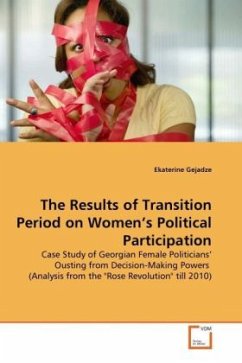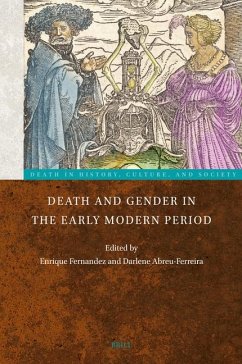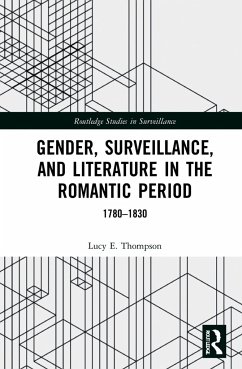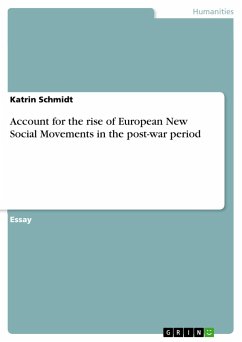
The Results of Transition Period on Women's Political Participation
Case Study of Georgian Female Politicians' Ousting from Decision-Making Powers (Analysis from the "Rose Revolution" till 2010)
Versandkostenfrei!
Versandfertig in 6-10 Tagen
32,99 €
inkl. MwSt.

PAYBACK Punkte
16 °P sammeln!
After the "Rose Revolution," President of Georgia Mikheil Saakashvili started an active campaign for promotion of women into politics. The goal of the paper is to solve the dilemma of the processes of drastic promotion of women politicians to the high official posts right after "Rose Revolution" and sudden ousting of female politicians from the executive and legislative branches of government by 2008. In my work I argue that the informal political bargains carried through patronage-based selection system, lack of institutional mechanisms to ensure gender equality and changed electoral system b...
After the "Rose Revolution," President of Georgia Mikheil Saakashvili started an active campaign for promotion of women into politics. The goal of the paper is to solve the dilemma of the processes of drastic promotion of women politicians to the high official posts right after "Rose Revolution" and sudden ousting of female politicians from the executive and legislative branches of government by 2008. In my work I argue that the informal political bargains carried through patronage-based selection system, lack of institutional mechanisms to ensure gender equality and changed electoral system before 2008 parliamentary elections caused the decline of women politicians from dominant political arena. My research aims to fill the gap in the literature of gender and politics by providing case study of Georgia as a unique case of the substantial promotion of female politicians into power directed by central authorities. The work should interest the academicians working on the issues of women's politics, the actual politicians or anyone else who is interested in how to promote female politicians on high decision-making powers.












